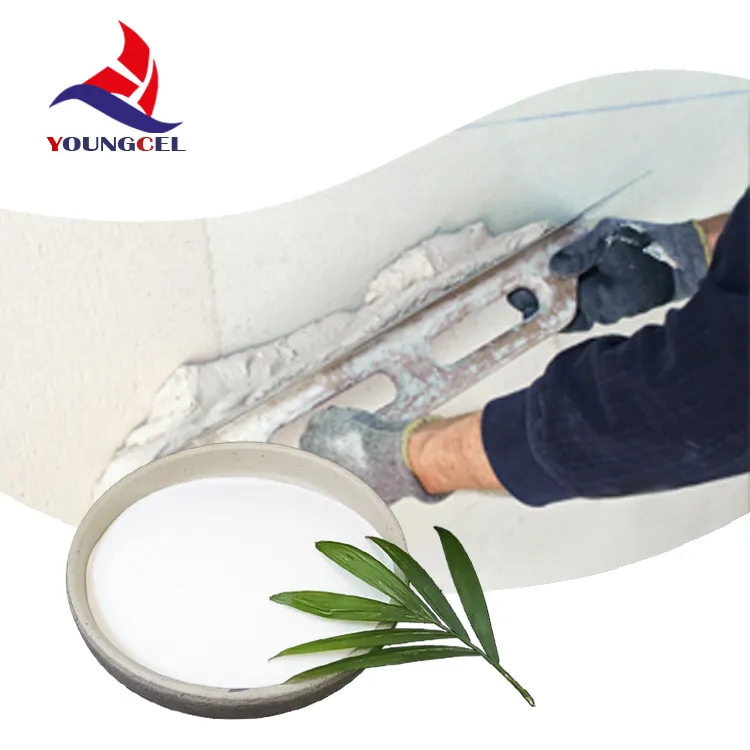Exploring Cellulose Manufacturers The Backbone of Sustainable Industry
Cellulose, a natural polymer made from plant cell walls, is one of the most abundant organic compounds on Earth. It serves as the primary structural component of plants, providing strength and rigidity. With the increasing demand for sustainable materials, cellulose has gained prominence in various industries, including textiles, food, pharmaceuticals, and biofuels. This article delves into the role of cellulose manufacturers, highlighting their processes, innovations, and contributions towards a greener future.
The Importance of Cellulose
Cellulose is significant not only for its ecological benefits but also for its versatility. It is biodegradable, renewable, and can be sourced from various plants, including wood, cotton, and agricultural residues. Cellulose fibers are key components in the production of paper and cardboard, while cellulose derivatives, such as carboxymethyl cellulose (CMC) and hydroxypropyl methylcellulose (HPMC), are widely used as thickening agents, emulsifiers, and stabilizers in food and pharmaceuticals. As industries strive to reduce their carbon footprint, cellulose stands out as a sustainable alternative to synthetic materials.
Key Players in Cellulose Manufacturing
The cellulose manufacturing industry comprises various players ranging from large corporations to specialized suppliers. Major companies like Rayonier, Sappi, and International Paper have established themselves as leaders in producing cellulose-based products. These manufacturers not only focus on the extraction and processing of cellulose but also invest significantly in research and development to innovate new applications and improve production processes.
Smaller manufacturers often carve out niches by producing specialty cellulose products or by utilizing environmentally friendly processes. For example, some companies prioritize sourcing raw materials from sustainably managed forests, thereby promoting eco-friendly practices throughout their supply chains. This commitment to sustainability is crucial in an era where consumers demand transparency and responsibility from brands.
Sustainable Practices in Cellulose Manufacturing
cellulose manufacturers

Sustainability is at the forefront of cellulose production. Many manufacturers are adopting greener practices to minimize their environmental impact. This includes using non-toxic solvents in the extraction process and developing closed-loop systems that recycle water and chemicals. Furthermore, some companies are exploring the use of agricultural waste and by-products as alternative sources of cellulose, which not only reduces waste but also supports circular economy initiatives.
Innovation is also a key aspect of sustainable cellulose manufacturing. Researchers and manufacturers are working together to develop advanced processing techniques that enhance the efficiency of cellulose extraction and purification, thus reducing energy consumption. For instance, enzymatic treatments have gained traction as eco-friendly alternatives to traditional chemical processes, resulting in higher yields and lower environmental impact.
Future Trends in Cellulose Manufacturing
As the global demand for sustainable materials continues to rise, cellulose manufacturers are well-positioned to lead the way. The increasing use of cellulose nanofibers in various applications, including lightweight composites, packaging materials, and even electronics, showcases the potential for cellulose to replace more harmful materials. This trend is expected to grow, driven by both environmental regulations and changing consumer preferences.
Moreover, advancements in biotechnology may revolutionize cellulose production processes. Genetic engineering techniques could enhance the yield and quality of cellulose from plants, while microbial production of cellulose offers exciting possibilities for sustainable manufacturing. These innovations have the potential to create a new wave of cellulose products that are even more environmentally friendly and cost-effective.
Conclusion
In conclusion, cellulose manufacturers play a vital role in advancing sustainable practices across multiple industries. Their commitment to innovation, eco-friendly processes, and responsible sourcing is crucial in addressing global environmental challenges. As awareness of sustainability grows, cellulose will likely become an even more integral component of our daily lives. By supporting cellulose manufacturers and their initiatives, consumers and businesses alike can contribute to a more sustainable future while enjoying the benefits of this remarkable natural resource.
-
Rdp Powder: Key Considerations for Wholesalers in the Building Materials IndustryNewsJul.08,2025
-
Key Considerations for Wholesalers: Navigating the World of Hpmc - Based ProductsNewsJul.08,2025
-
Hpmc Detergent: Key Considerations for WholesalersNewsJul.08,2025
-
Key Considerations for Wholesalers: China Hpmc For Tile Adhesive, Coating Additives, Concrete Additives, and MoreNewsJul.08,2025
-
Crucial Considerations for Wholesalers: Navigating the World of Construction MaterialsNewsJul.08,2025
-
Key Considerations for Wholesalers Sourcing Additive For Cement, Additive For Concrete, Additive For Putty from Additive Manufacturer Shijiazhuang Gaocheng District Yongfeng Cellulose Co., Ltd.NewsJul.08,2025




